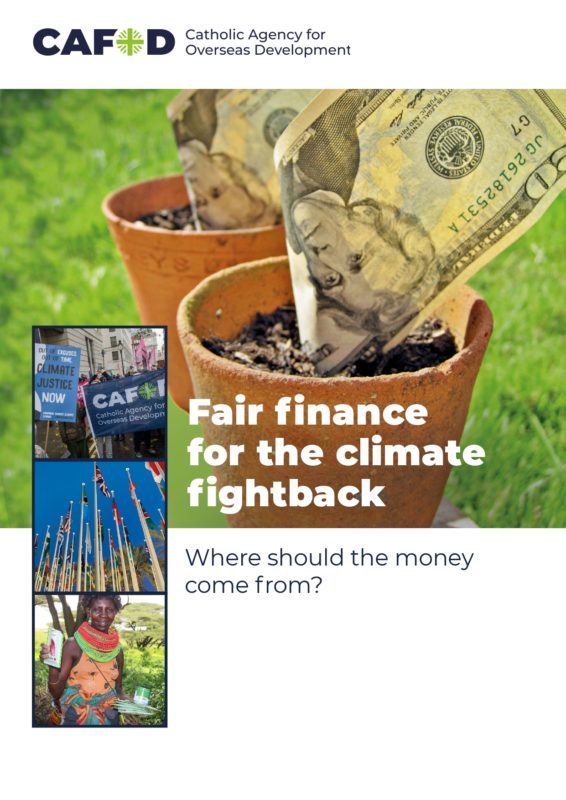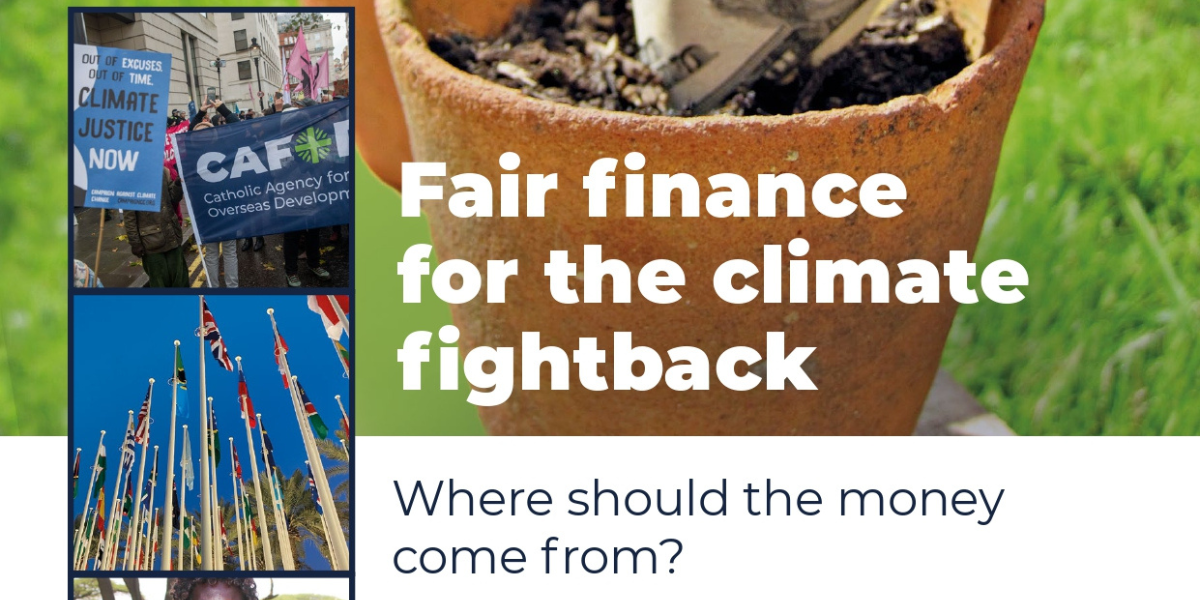CAFOD Discussion Paper, May 2024
Authors: Liz Cronin and Maria Finnerty
In this discussion paper, CAFOD, CIDSE’s Member in England and Wales, calls for greater exploration of three ‘innovative sources’ of finance, which can help raise the huge amounts of money needed to tackle the climate crisis in a way that is both fair and effective. These sources are reforms to the global tax architecture, debt infrastructure, and international financial institutions (IFIs).
Within a climate debate that is often polarised along lines of public versus private sector investment, grants versus loans, and bigger versus better financial institutions, we hope to bring greater attention to justice-based revenue-raisers that have so far been underdiscussed. Many of the innovative sources addressed in this paper have been raised within initiatives such as the Bridgetown Agenda, the International Tax Taskforce, and the World Bank Evolution Roadmap, but they are yet to become integral to proposals for climate action.
Heeding the calls of our partners in climate-vulnerable countries (CVCs), and drawing on Catholic Social Teaching, CAFOD puts forward several changes to the global economic architecture. These are aimed at increasing the resources available to, and autonomy of, these countries, enabling them to tackle the challenges the climate crisis has created.

The reforms that are needed go beyond aid alone, and should align with the moral imperative that it is public and grant-based money from high-income, large, and historically polluting countries that must make up the vast majority of global climate finance. Indeed, the three themes we identify supplement, rather than replace, public, new and additional, and grant-based investment: they would not, and should not, provide all the money that is needed. But they would ensure major polluters pay their fair share towards the climate clean-up; tackle the injustice of CVCs paying five times more on debt interest payments than on climate action; and move us towards IFIs that are more representative of CVCs.
In this discussion paper, CAFOD calls for greater exploration of three ‘innovative sources’ of finance, which can help raise the huge amounts of money needed to tackle the climate crisis in a way that is both fair and effective. These sources are reforms to the global tax architecture, debt infrastructure, and international financial institutions (IFIs).
If we are to tackle the climate crisis in a fair way, we must pursue three objectives that would unlock innovative sources of finance:
- Fix the broken global tax architecture
- Resolve the new global sovereign debt crisis
- Reform International Financial Institutions
Climate change is a structural, regressive emergency that punishes the poorest and least responsible the most. Major, systemic changes are therefore required to increase the resources available to those who have long been marginalised and are now suffering the effects of integrated environmental and economic crises.
Contact person for additional information: Liz Cronin, Policy Lead Climate Change, CAFOD (lcronin(at)cafod.org.uk).
Cover photo credits: CAFOD

